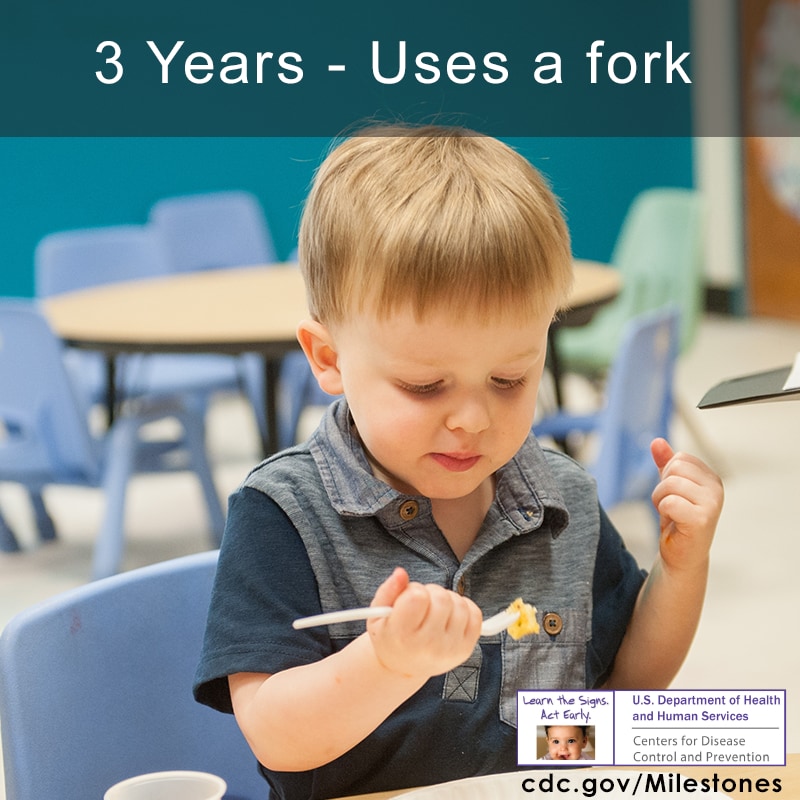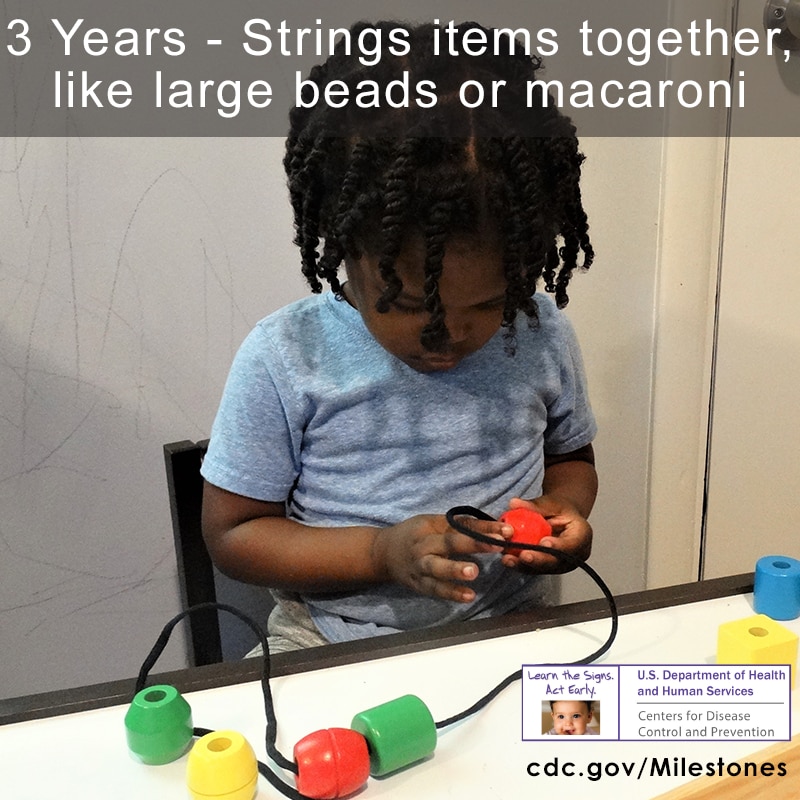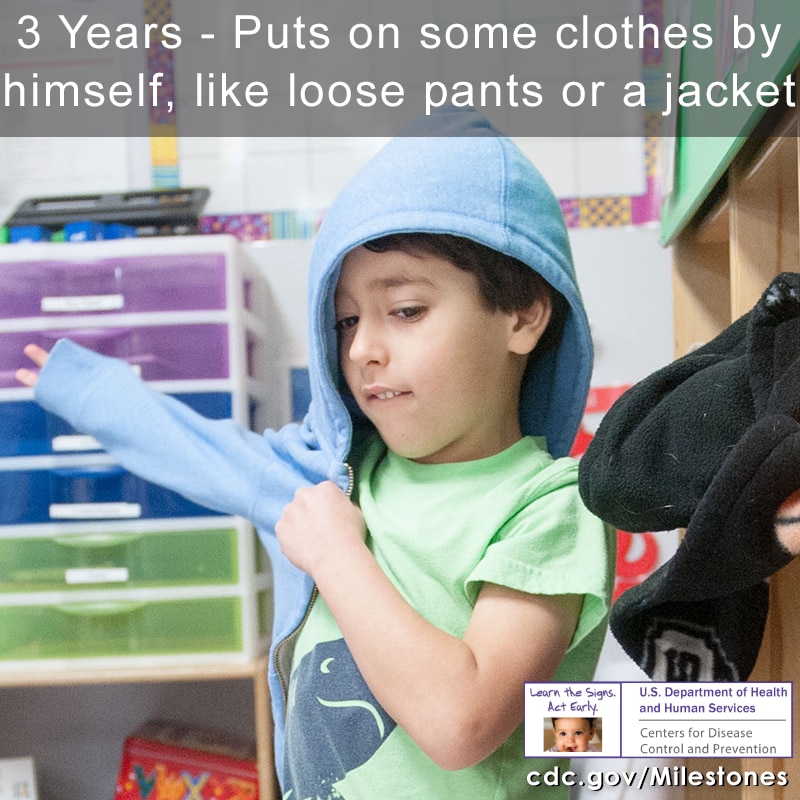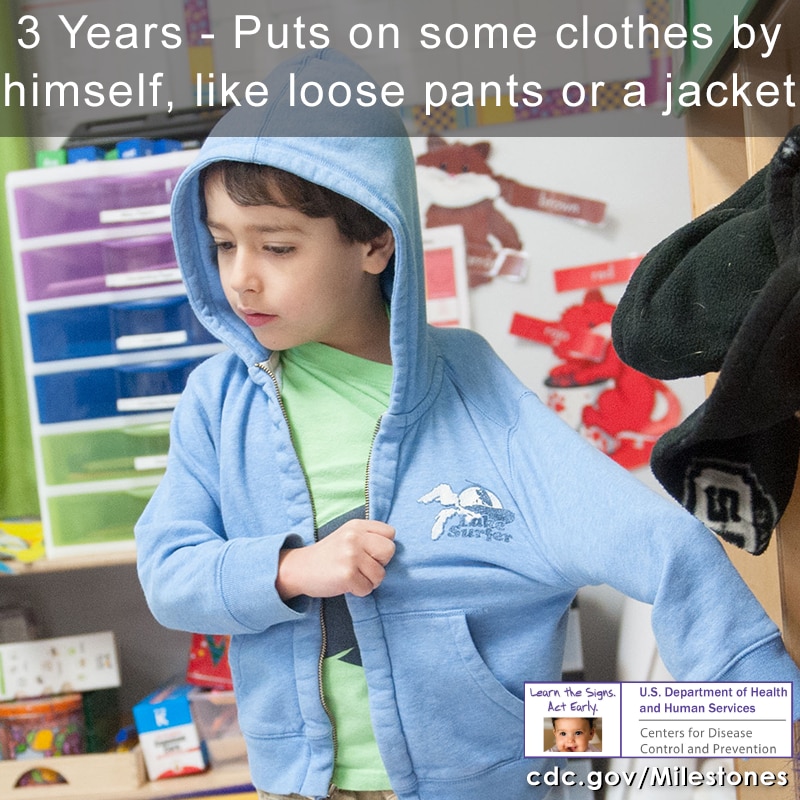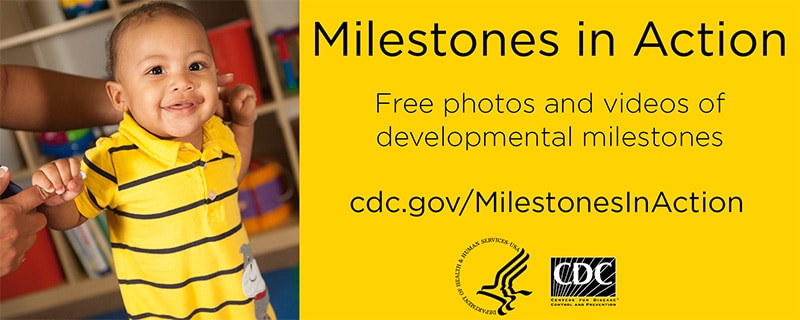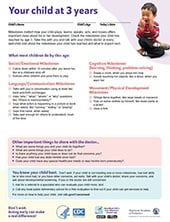Important Milestones: Your Child By Three Years
In 2022, CDC’s milestones and parent tips were updated and checklist for ages 15 and 30 months were added. For more information about the CDC’s developmental milestones, please review the Pediatrics journal article and these important key points.
How your child plays, learns, speaks, acts, and moves offers important clues about your child’s development. Developmental milestones are things most children (75% or more) can do by a certain age.
Check the milestones your child has reached by 3 years by completing a checklist with CDC’s free Milestone Tracker mobile app, for iOS and Android devices, using the Digital Online Checklist, or by printing the checklist [1 MB, 2 Pages, Print Only] below.
“Learn the Signs. Act Early.” materials are not a substitute for standardized, validated developmental screening tools.
What most children do by this age:
Social/Emotional Milestones
- Calms down within 10 minutes after you leave her, like at a childcare drop off

- Notices other children and joins them to play
Language/Communication Milestones
- Talks with you in conversation using at least two back-and-forth exchanges
- Asks “who,” “what,” “where,” or “why” questions, like “Where is mommy/daddy?”
- Says what action is happening in a picture or book when asked, like “running,” “eating,” or “playing”
- Says first name, when asked
- Talks well enough for others to understand, most of the time
Cognitive Milestones (learning, thinking, problem-solving)
Movement/Physical Development Milestones
Other important things to share with the doctor…
- What are some things you and your baby do together?
- What are some things your baby likes to do?
- Is there anything your baby does or does not do that concerns you?
- Has your baby lost any skills he/she once had?
- Does your baby have any special healthcare needs or was he/she born prematurely?
Concerned About Your Child’s Development?
Act Early.
You know your child best. Don’t wait. If your child is not meeting one or more milestones, has lost skills he or she once had, or you have other concerns, act early. Talk with your child’s doctor, share your concerns, and ask about developmental screening.
If you or the doctor are still concerned:
- Ask for a referral to a specialist who can evaluate your child more; and
- Call your state or territory’s early intervention program to find out if your child can get services to help. Learn more and find the number at cdc.gov/FindEI.
For more on how to help your child, visit cdc.gov/Concerned.
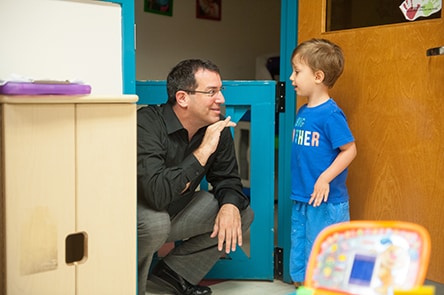
As your child’s first teacher, you can help his or her learning and brain development. Try these simple tips and activities in a safe way. Talk with your child’s doctor and teachers if you have questions or for more ideas on how to help your child’s development.
- Encourage your child to solve her own problems with your support. Ask questions to help her understand the problem. Help her think of solutions, try one out, and try more if needed.
- Talk about your child’s emotions and give him words to help him explain how he’s feeling. Help your child manage stressful feelings by teaching him to take deep breaths, hug a favorite toy, or go to a quiet, safe place when he is upset.
- Set a few simple and clear rules that your child can follow, such as use gentle hands when playing. If he breaks a rule, show him what to do instead. Later, if your child follows the rule, recognize and congratulate him.
Special acknowledgments to the subject matter experts and others who contributed to the review of data and selection of developmental milestones, especially Paul H. Lipkin, MD, Michelle M. Macias, MD, Julie F. Pajek, PhD, Judith S. Shaw, EdD, MPH, RN, Karnesha Slaughter, MPH, Jane K. Squires, PhD, Toni M. Whitaker, MD, Lisa D. Wiggins, PhD, and Jennifer M. Zubler, MD.
Sincere gratitude to Natalia Benza, MD and José O. Rodríguez, MD, MBA for their thoughtful review of the Spanish-language translation of these milestones.

